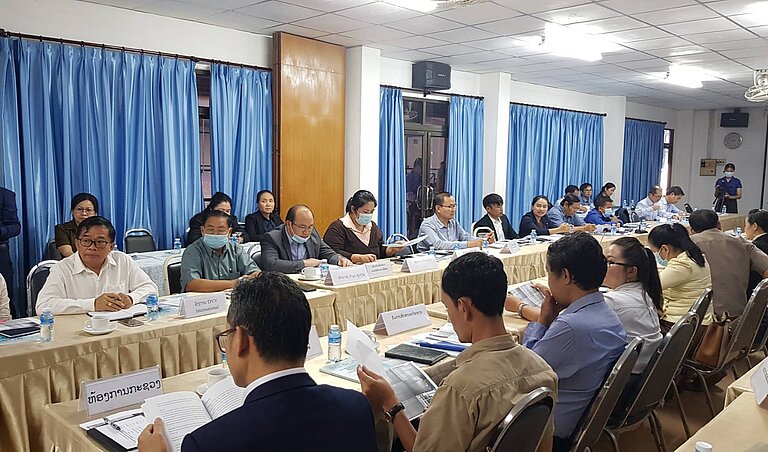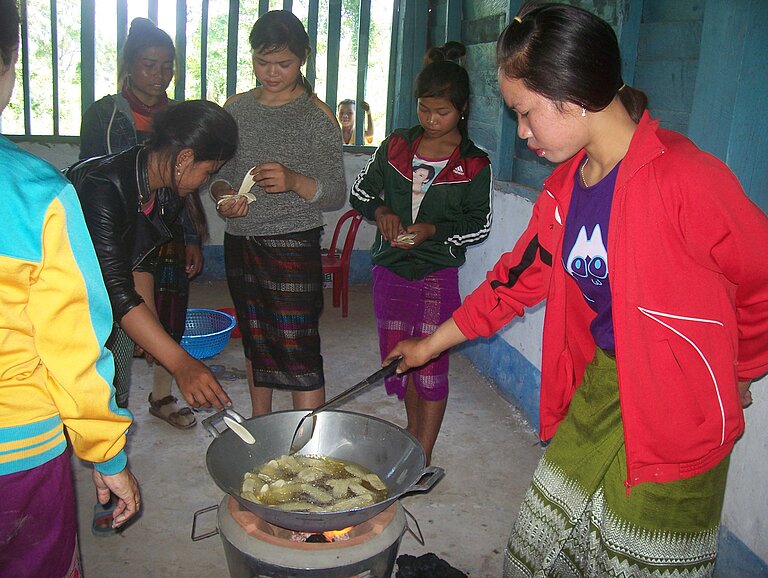A success story or still a long way to go? Adult learning and education in Southeast Asia
The concept of lifelong learning (LLL) is certainly on the rise; this is also true for Southeast Asia where the governments of Laos and Cambodia recently adopted lifelong learning policies. LLL is the concept that shapes education in the 21st century and that acknowledges all learning outcomes and competencies in society. It moves away from the narrow traditional view of education – which only focusses on learning in formal institutions – to a notion that includes all forms of learning, regardless of where and how such knowledge and skills have been acquired.
But in what way does Adult Learning and Education (ALE) benefit from it? Does it meet the criteria of the UNESCO Recommendation for Adult Learning and Education (RALE) in Southeast Asia? RALE defines the key domains of adult learning and education as well as five areas of action for member states to improve their adult education systems. It serves as the most up-to-date normative instrument in the adult education sector.
The UNESCO Recommendation for Adult Learning and Education (RALE)
RALE Key domains:
- Literacy and basic skills;
- continuing education and vocational skills; and
- liberal, popular and community education and citizenship skills.
RALE Areas of action:
- Develop ALE policies and programmes
- Improve the governance of ALE
- Increase funding for ALE
- Promote participation, inclusion and equity
- Improve the quality of ALE
In order to answer the above-mentioned questions and to assess the state of adult education in mainland Southeast Asia, DVV International conducted a research project in Thailand, Laos, Cambodia and Vietnam, with one partner from each country.
The partners:
Main responsible partner in the project: Faculty of Lifelong Education from Chulalongkorn University in Bangkok (Thailand)
Further partners:
Faculties of Education from the National University of Laos
Royal University of Phnom Penh (Cambodia)
Centre for Lifelong Learning of the Southeast Asian Ministers Organisation (Vietnam)
The project started with a research phase that mainly included the study of legal documents, available curricula and the plans of governments as well as interviews with stakeholders and experts. It was followed by two workshops which helped the parties to agree on a common framework and method of exchange for the research results. The project culminated in a publication published by Chulalongkorn University, which was subsequently launched in all four participating countries.

Need for a common understanding of ALE
The publication, which included the research reports from all four countries, revealed interesting insights. It was striking that the term “adult education” was rarely used. On the one hand, this was known before, but during the research it became more evident that a common understanding of the term is essential for the promotion of adult education in the region. While in Vietnam the term “continuing education” is in frequent use, the other three countries mainly talk about “non-formal education”. All these terms are not identical to adult education.
Liberal and popular education still being neglected
Furthermore, all country studies highlighted the fact that the first two key domains defined in the UNESCO Recommendation are substantially covered in all four countries. Both literacy and basic education (domain 1) and vocational skills and continuing education (domain 2) receive comprehensive attention, while it had to be admitted that this attention actually differed from country to country. A difference could be detected between those countries with a higher economic status (Vietnam, Thailand) and those countries that are still struggling to leave their status as least developed countries (Laos, Cambodia).
Initiatives about the third domain, which includes areas such as liberal and popular education, citizenship skills and community education are, however, a rare exception in all four countries. This comes as no surprise when looking at the constraints regarding any sort of public discourse in the target countries. In one-party states (Vietnam, Laos) or countries with strong (Cambodia) or increasing (Thailand) authoritarian tendencies it can certainly not be expected that a deficient adult education system will allow involvement of participants in open political debates. Yet, as trainings on soft skills are on the rise in some of the countries, a slow rapprochement can be witnessed with regard to the third domain as well.
Too little financial and governmental support
Besides the three domains, the UNESCO Recommendation provides for five areas of action which were all in the spotlight in the country research as well. Starting with the deficiencies, all partners agreed that the area with the greatest challenges is undoubtedly the area of financing. Adult learning and education, non-formal education and continuing education are neglected to a large extent by national governments and development partners alike. Yet to be fair, there are a number of initiatives in each of the countries that very well deserve attention. This occasionally complicates matters as, in terms of the second area of action (governance), a number of different players in each country cover similar and sometimes overlapping fields. However, it can be seen that, especially in Vietnam and in Thailand, substantial progress has been made in recent years. In Vietnam, the concept of a lifelong learning society is already well-embedded and provides for a large number of Community Learning Centres at village level. In Thailand, the Office for Non-Formal and Informal Education (ONIE) provides a large number of Community Learning Centres with internet connection (WiFi).
The potentials of ALE for Southeast Asia

Furthermore, the development of foundational policies (first area of action) is a promising aspect in all countries, especially in Laos and Cambodia where lifelong learning will now serve as the basic principle of further developing education systems.
The concept of non-formal education practiced in Laos, Thailand and Cambodia particularly focusses on the most marginalized and vulnerable as target groups. This can be seen as a strong effort to meet the demands of the fourth area of action: inclusion and participation. In practice, there are still a lot of challenges which are largely caused by deficiencies in governance and a lack of financial support. Yet, in many instances it can be seen that public donors and development partners also focus on this area.
Finally, adult education is also about quality (fifth area of action). While it was out of reach of the present publication to fully assess the quality of adult learning and education in the four participating countries, it was common understanding that quality largely depends on the quality of teachers and their personal engagement, especially in situations where there are shortages in terms of material, curricula and sometimes even premises where lessons can be conducted. Cooperation with the formal education system currently helps significantly in overcoming these shortages.
The way forward
The project undoubtedly produced valuable results. All participating organisations agreed that further research as well as further lobbying for the cause of adult learning and education is essential to ensure public responsibility and wider recognition of our objectives. In particular, the concept of lifelong learning offers a wide range of entry points in this regard. In Southeast Asia we can certainly not afford to miss out on these chances and we are hopeful that – despite shrinking education budgets as a consequence of the Covid-19 pandemic – there is an (even) brighter future for adult education. DVV International will continue to contribute to this future through its regional cooperation with the Asia South Pacific Association for Basic and Adult Education (ASPBAE) as well as through its country projects in Laos and Cambodia.



